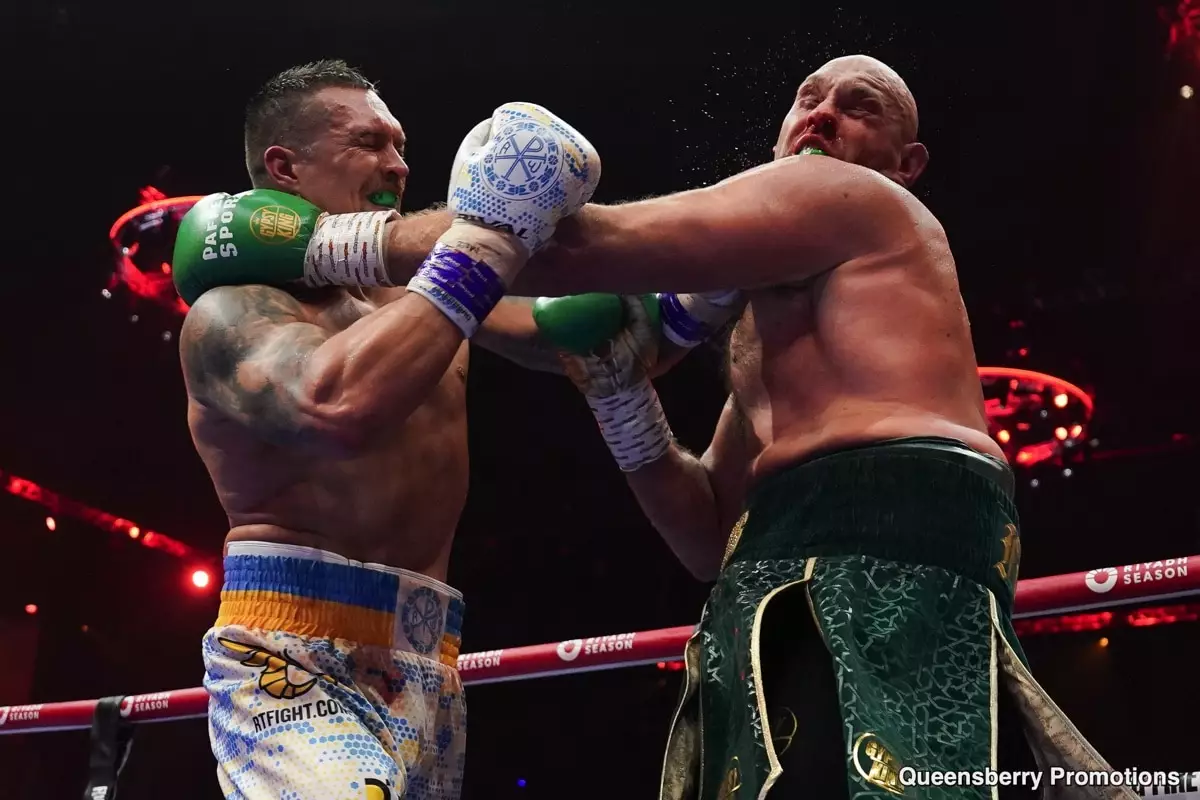As the boxing world gears up for what is touted to be a monumental rematch between Oleksandr Usyk and Tyson Fury, all eyes are set on December 21. The heavyweight division is one of the most discussed and followed segments of professional sports, and this particular bout carries a weight of anticipation and speculation that transcends mere competition; it engages the essence of legacy and redemption. Promoter Frank Warren has indicated that regardless of the outcome, his support for Fury will remain unwavering. However, the nuances of such a situation are far more complex than simple backing.
Fury, a fighter known for his charisma and unique style, finds himself at a pivotal moment in his career. Having faced Usyk once before, the prospect of another defeat could prompt numerous consequences, both professionally and personally. Warren believes that should Fury falter again, the allure of a monumental clash with Anthony Joshua—an all-British showdown—would still persist. This highlights the ongoing importance of rivalry and marketability in the sport, even amidst potential setbacks for individual fighters.
Warren’s confidence in Fury’s ability to secure victory in the rematch is notable, as he mentions that even in a narrow loss, Fury demonstrated that he could hold his own against Usyk’s boxing prowess. The anticipation of a possible trilogical fight—if Fury avenges his earlier loss—adds an enticing layer to this narrative. Fans and analysts alike relish in the concept of trilogies in boxing; they resonate with themes of redemption and rivalry, drawing audiences deeper into the saga of the fighters involved.
When discussing the potential for Fury’s future if he loses again, it’s essential to acknowledge that while the Joshua fight remains viable, the landscape is changing. The public’s interest in a Fury vs. Joshua bout may not be as fervent as in previous years, primarily due to the dynamic nature of careers and public sentiment. As new challengers like Daniel Dubois emerge, they too shift the focus away from conventional narratives, potentially altering the course of future matchups.
Perhaps one of the most compelling dimensions of this discourse is the mention of Tyson Fury’s mental health. Warren has suggested that boxing plays a crucial role in Fury’s mental wellbeing, a reality that cannot be overlooked in the narrative of modern sports. The acknowledgment of a fighter’s psychology is becoming increasingly mainstream and reflects a cultural shift in how we view athletes—not just as entertainers or competitors, but as individuals grappling with profound challenges.
This perspective invites deeper discussion on the responsibilities of promoters, trainers, and the boxing community in providing a supportive environment for fighters facing personal battles. If Fury were to retire post-defeat, it certainly raises questions about the resources available for him and others like him—versatile assistance beyond just training and physical readiness.
As anticipation builds for the Usyk vs. Fury rematch, the outcomes could dramatically reshape the heavyweight boxing narrative. With a plethora of matchups waiting in the wings—ranging from classic rivalries to fresh encounters—fans are guaranteed to witness the evolution of the heavyweights firsthand. The question remains whether the future will see the continuation of established legends facing each other or new talent emerging as contenders.
The December 21 face-off will serve as a litmus test for both fighters—Fury’s resilience will be challenged against Usyk’s technical mastery. Regardless of the outcome, the heavyweight division is on the cusp of change, and the boxing world will undoubtedly be watching closely. Each bout, victory, or defeat becomes a stepping stone in the larger narrative of the sport, echoing through arenas and falls into the shared consciousness of a global audience. The heavyweight division, thus, is set to continue its storied legacy, offering memorable clashes while offering a reminder of the human condition behind the sport.

